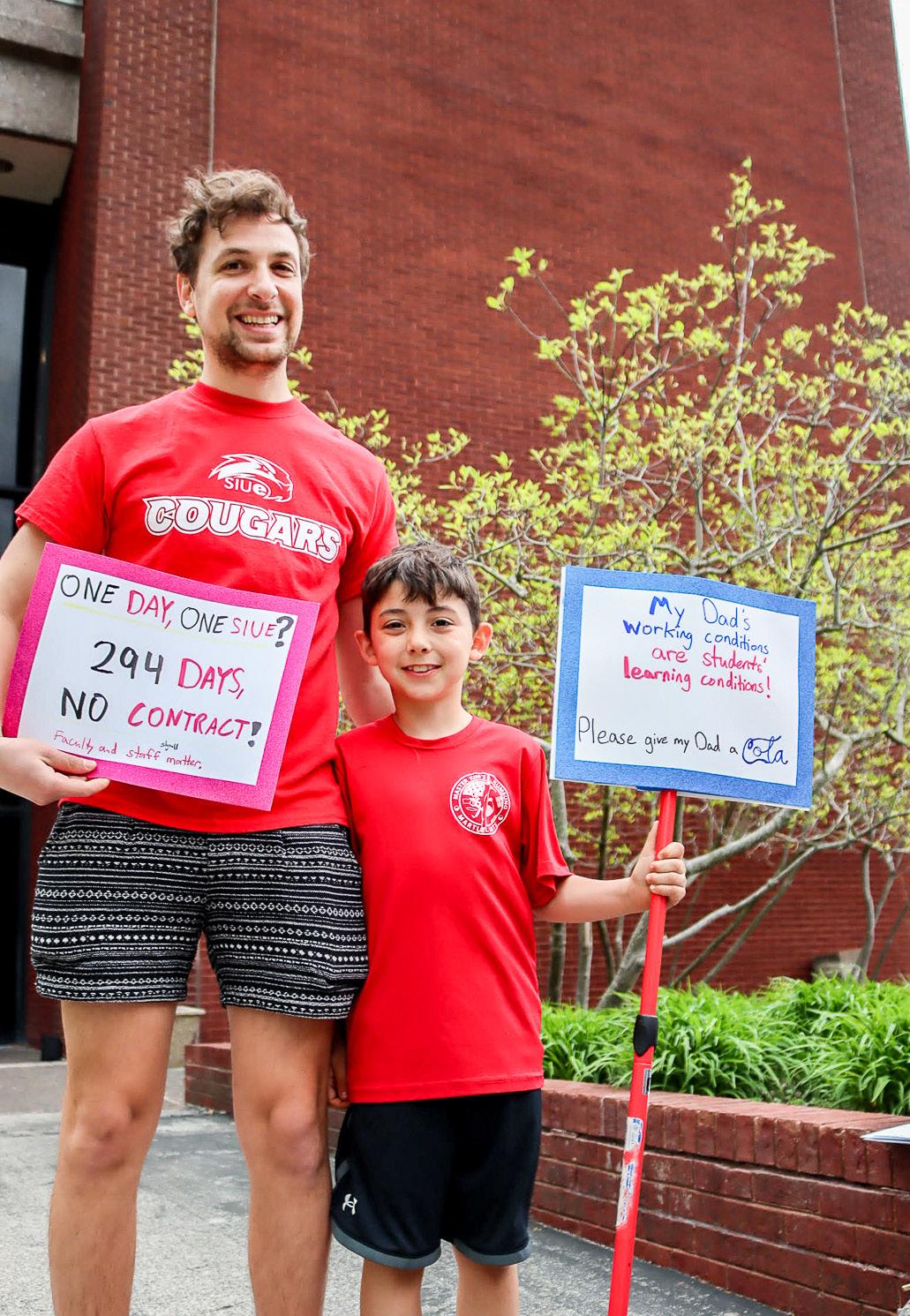
2 minute read
Clerical workers kicked out of MUC for protest
BRUCE DARNELL managing editor
On June 28, AFSCME Local 2887 union clerical workers were told to leave the Morris University Center in anticipation of them protesting.
The protest was organized in response to the union’s negotiation meeting being canceled Friday. The group gathered at 11:30 a.m., right before the start of a new student orientation exhibit fair.
They were told they were not allowed to protest in the MUC and were given a highlighted copy of a university policy governing how demonstrations are to be carried out on campus.
The policy allows spontaneous protests, as long as they follow university rules.
The policy reads: “Expressive Activities may only be conducted in locations that do not interfere with the educational mission of the university or other University business, as determined by the university.”

The paper was delivered by Interim Vice Chancellor Bill Retzlaff, who advised that he had spoken to the university’s legal team and that the group could not be in the MUC.
According to members of the union, they were only gathering inside the MUC and had not begun their protest before being approached by Retzlaff.
Neither Retzlaff nor representatives from his office responded to our three requests for an interview.
Kedra Tolson, executive director of Marketing and Communications, responded via email regarding the situation:
“New Student Orientation is an event or activity that represents the educational mission of the university. We are committed to ensuring that New Student Orientation occurs as scheduled, with no interruptions, interference or disruption by an unscheduled event.”
Students and adults attending new student orientation were told there would be a group protesting. Student orientation leaders were also warned and implored not to speak to The Alestle.
The clerical workers continued their protest outside, handing out flyers and speaking to future students and their families touring campus.
Among the protesters was Amy Bodenstab, vice president of AFSCME Local 2887, who said union members feel disrespected by university administration in their negotiations.
“In December 2019, [former chancellor] Pembrook stood in a meeting and told me in front of a room of people, which included Board of Trustees members, that they knew our pay wasn’t accurate… That was three and a half years ago, and they still don’t have anything financial to present to us,” she said.
The clerical workers’ contract expired almost exactly a year ago, and they have been in negotiations since, during which there has been little progress. And during that time, clerical workers’ responsibilities have not gotten easier.
“Our workloads are ridiculous,” Bodenstab said. “The things we are often asked to do are multiple pay grades above us — sometimes, they’re not even in our classification group — and, yet, we’re required to do them to keep our jobs, but we’re not paid for doing them.”
Bodenstab noted that the clerical staff is predominantly women — about 92 percent female.
“We have been [mostly female] for 20 years,” Bodenstab said. “Our longevity has been a penny a year of service — a penny! There’s nobody else on campus that has gotten that kind of disgusting longevity [pay].”
Julie LaTempt-Brazier, AFSCME Local 2887 president, was at the protest. She said many students and faculty support the union’s attempts in getting a new contract.
“They say, ‘Give me a sign,’ or, ‘You guys are awesome,’” LaTempt-Brazier said. “They love the office support that they work with because they’re the ones that make things happen… They turn the wheel in the office.”
LaTempt-Brazier also said that the union is extremely upset with the meeting cancellation.
“They feel that they have been treated like they don’t matter,” LaTempt-Brazier said. “They feel like a commodity — something that can be used up and thrown away.”
Because of this, morale is at an all-time low on campus, according to LaTempt-Brazier.

“It’s a continual thing that keeps happening,” LaTempt-Brazier said. “We’re not given anything.”










